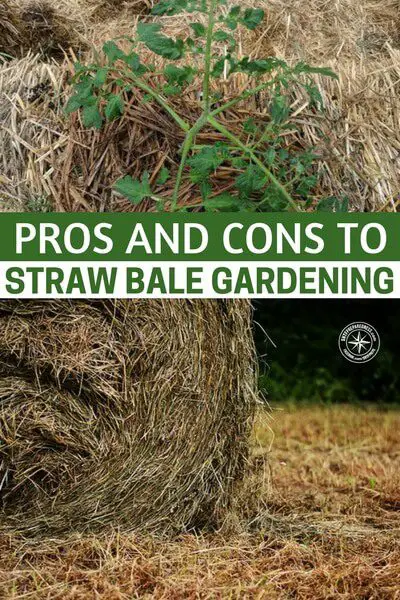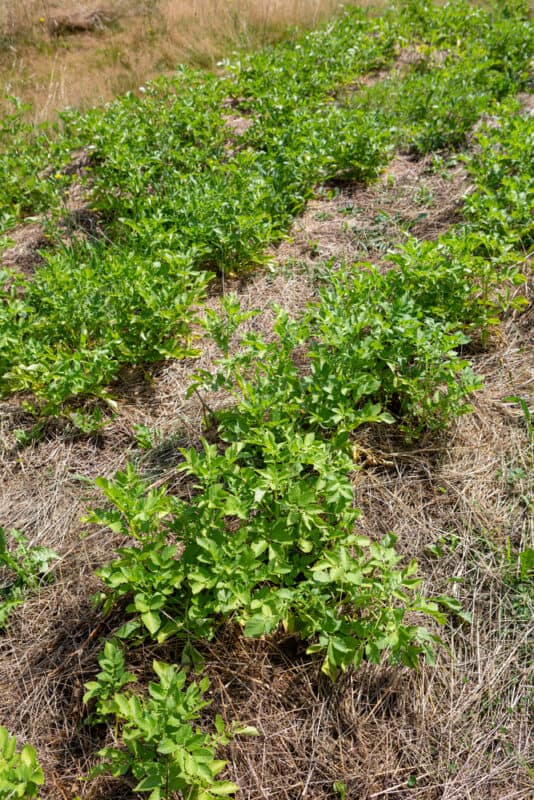Straw Bale Gardening Pros And Cons
Do you wish to try your hands in gardening but don't have a yard? Or maybe you have poor soil quality that does not support plant growth? Don't worry; Straw bale gardening is an efficient solution that is being adopted worldwide. In this post, we will explore Straw bale gardening pros and cons and see if it's a good fit for you.
Pain points related to Straw bale gardening pros and cons
Gardening is an excellent hobby that helps relieve stress and gives you a sense of accomplishment. But traditional gardening requires a lot of work to create an ideal environment, including good soil quality, drainage, watering schedule, etc. Straw bale gardening is an attractive option for gardeners who do not want to go through this process. However, each gardening method has its advantages and disadvantages.
Target of Straw bale gardening pros and cons
Straw bale gardening is an emerging technique of container gardening that uses straw bales to create a growing medium for your plants. The bales decompose over time, providing essential nutrients to the plants. In this way, straw bale gardening eliminates the need for traditional soil preparation, which can be a tedious and challenging process. The benefits and downsides of this technique are essential to consider before deciding to adopt this method.
Summary of the article's main points
Before adopting Straw bale gardening, it is essential to understand its pros and cons. The advantages include easy setup, water conservation, portability, and improved plant growth. On the other hand, the downsides are limited planting options, frequent watering, short life span, and an initial high cost for bales. Despite the potential disadvantages, straw bale gardening is an excellent option for gardeners with limited space or soil quality in need of improvement.
Straw bale gardening Pros and Cons Explained
Straw bale gardening offers a high degree of portability, allowing you to grow plants indoors or on a balcony. Additionally, straw bales are a sustainable option because they are biodegradable and can be used as compost after the season is over, which is another advantage. However, keep in mind that straw bales are not suitable for every plant and can limit your planting options. It's essential to research which plants are compatible with straw bale gardening before buying the bales.
Regular watering is required for straw bale gardening, which can be a downside for some gardeners. However, this can also be an advantage in arid regions where water conservation is crucial. Since straw bales have poor insulation, they can lead to shorter life spans for the bales when exposed to water. Lastly, the initial cost of buying straw bales may seem high, but keep in mind that they are reusable and provide an excellent growing medium.
Straw bale gardening in more detail
Straw bale gardening offers several distinct benefits over traditional gardening methods. The bales create a hydroponic environment that helps retain moisture, reducing the need for constant watering. Watering your plants once every two days is sufficient. Moreover, straw bales offer excellent insulation to keep your plants warm and promote faster growth during the cold seasons. You can also have a better arrangement of your plants concerning sunlight and exposure to pests and diseases. Plus, straw bale gardening is an excellent way to grow your own organic produce without worrying about soil quality.
Straw bale gardening Cons in detail
One of the biggest downsides of straw bale gardening is that it can be challenging to find the ideal location to grow your plants. The bales are large and need a relatively stable surface to maintain their structure. Additionally, you cannot plant every plant in straw bales, such as plants with deep roots like carrots or beets. Moreover, the bales begin to break down near the end of the growing season, losing their structural integrity. This leads to reduced nutrient levels in the soil, making it harder to grow plants from new bales in the next season.
Personal experience with Straw bale gardening pros and cons
There are a few things to keep in mind before starting straw bale gardening. When I started straw bale gardening, I was pleased to find that it was much easier than my traditional garden setup. There were no weeds, and the bales were light and easy to move around. I also found that the plants grew faster in straw bales than my traditional garden setup. However, I had to watch the moisture levels carefully to keep my plants healthy.
On the downside, there were some issues with stability, and I had to place plywood under the bales to keep them from sinking. I also found out that not all plants were suitable for straw bale gardening. For instance, the lack of depth limited some of my root vegetables' growth, such as potatoes and carrots.
Question and Answer section
What plants are suitable for straw bale gardening?
Plants that are shallow-rooted do well in straw bale gardening, which includes tomatoes, peppers, eggplants, and lettuce. You can also grow beans, cucumbers, and pumpkins in straw bales.
How long do straw bale garden lasts?
Straw bales last for one season only because they begin to disintegrate after the season is over. It's not recommended to reuse them for the next season.
How often should I water my plants in straw bales?
Watering requirements may vary depending on the region and climate, but generally, straw bale gardening requires watering once every two days.
Can I grow organic produce using straw bale gardening?
Yes, you can grow organic produce in straw bale gardening. Since compost and other organic fertilizers are added to the bales, this technique is an excellent option for organic gardening.
Conclusion of straw bale gardening pros and cons
Straw bale gardening is an excellent option for gardeners who have limited space and soil quality that cannot support traditional gardening. The technique offers several benefits, including easy setup, portability, and less work, but also has some downsides such as limited planting options and frequent watering. Overall, it is a great way to grow your organic produce and can be a fun hobby to adopt.
Gallery
Pros And Cons To Straw Bale Gardening - SHTFPreparedness

Photo Credit by: bing.com / gardening straw bale pros cons shtfpreparedness choose board
My Straw Bale Garden - YouTube

Photo Credit by: bing.com / garden straw bale gardening hay raised bales gardens beds growing bed plant strawbale grow plants hugelkultur container farming urban use
Pros And Cons Of Straw Bale Gardening

Photo Credit by: bing.com /
An In-Depth Guide To Straw Bale Gardening For Beginners

Photo Credit by: bing.com / bale pros
Straw Bale Gardening - Pros And Cons - Garden Myths

Photo Credit by: bing.com / straw bale bales rockery recyclable theownerbuildernetwork convenient